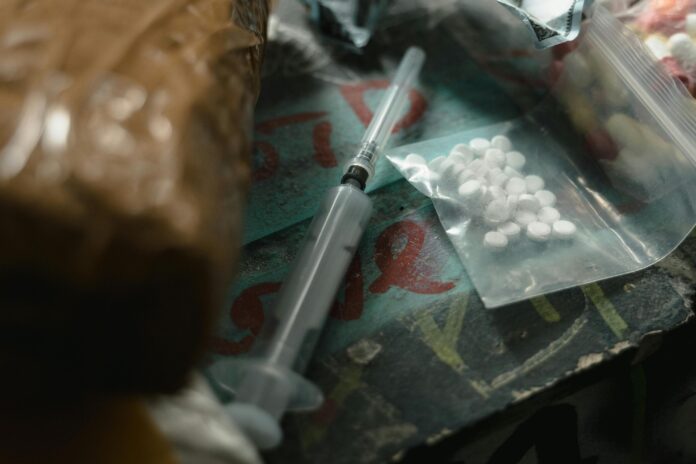
KUALA LUMPUR – Healthcare practitioners have urged authorities to consider moving away from criminalising drugs and enforcing punitive action in favour of comprehensive harm reduction measures via the legalisation or decriminalisation of drugs.
The call comes amid the recent deaths of four individuals, aged between 20 and 40, who had allegedly purchased the ecstasy drug suspected to have killed them at the Pinkfish Countdown concert in Sunway Lagoon, Subang Jaya.
Advocating for the decriminalisation of drugs, hospital pharmacist Fatimah Kamis asserted that blacklisting drugs should not be deemed an effective move towards ensuring that people stop taking such substances because it will only pave the way for users to find “deadlier” drugs.
“Many of these novel psychoactive substances, being new, have unpredictable effects and unknown pharmacokinetic or pharmacodynamic profiles. This can potentially lead to even more complications, including death.
“At the end of the day, harm reduction measures, constant awareness efforts and empowerment are still the best, evidence-based approach for us to adapt to tackle this matter,” she said when contacted by Scoop, noting that the legalisation of drugs would allow for better regulatory practices.
She added that legalising drugs would also enable the government to enact more stringent quality control and improve its monitoring policies, similar to how the pharmaceutical industry has measures to monitor users’ potential adverse events and faulty or adulterated products.
However, Fatimah stressed that legalisation or decriminalisation should go hand in hand with an awareness of safe and responsible drug use. She highlighted the importance of being aware of what to expect when using drugs and how to reduce potential harms – such as overdosing, addiction or dependence, as well as physical and mental health complications.
“I know people think we have done a lot of ‘awareness’ on drug use (as) we have a dedicated National Anti-Drug Agency, but a lot of the awareness efforts done are fearmongering in nature. (It is) in denial of the reality that people have been, and will be, using recreational drugs – no matter how much ‘just say no’ campaigns you do.”
When asked if Putrajaya’s current framework in dealing with drug use issues can be considered unsustainable and potentially detrimental, Fatimah replied in the affirmative, adding: “People are going to use drugs no matter what the law says.”

Highlighting how authorities’ existing approach in tackling the issue is mainly “punitive in nature” and treats drug use-associated complications as a criminal issue rather than a medical issue, she cautioned that such a method could do more harm than good.
“Taking a punitive approach drives people away from safe drug use while providing little solution to the problem in place. If the problem is addiction-related, detaining people at rehabilitation institutes (Pusat Serenti) won’t cure them, as evidenced by the rate of re-offence.”
Commenting on the Pinkfish-linked deaths, Fatimah said the incident serves as a “sober reminder” of the dire need for harm reduction measures when it comes to drug use – especially during events where such substances are considered “a norm”.
Noting that other nations have adopted on-site harm reduction strategies with the help of non-governmental organisations such as DanceSafe and Zendo Project, she said that having such initiatives here would be a positive step as festival organisers often do not have sufficient skills to deal with psychoactive drug use-related incidents.
Measures such as free drug tests as well as psychological and medical first aid at concerts, she said, are crucial as a substantial number of drugs flooding the market these days are laced with adulterants – including ketamine, synthetic cathinone, methamphetamines and other novel psychoactive substances.
She warned that when such substances are combined and ingested in unknown quantities, users could suffer unpredictable adverse reactions, ranging from cardiovascular or respiratory complications to death.
Meanwhile, addiction and mental health treatment expert Dr Prem Kumar Shanmugam said that since it would be “almost impossible” to rule out drugs at party events, concerts and clubs – due to how both supply and demand are seen as constant factors – harm reduction should be considered a viable alternative.
Prem, who is also a psychologist and psychotherapist, referred to how Malaysia had previously recorded relative success in certain harm reduction measures, particularly those aimed at curbing the rapid increase of acquired immunodeficiency syndrome (AIDS) due to the spread of the human immunodeficiency virus (HIV).
“Instead of telling people to stop taking drugs and injecting heroin, we (healthcare professionals) told them that if you’re a drug user and you can’t stop, come see us and we will give you needles as part of the Needle Syringe Exchange Programme.
“When we implemented the programme in 2005, we managed to reduce HIV infections tremendously,” the founder and chief executive officer of Solace Asia, a rehabilitation centre dedicated to the holistic treatment of addiction, told Scoop.
Expressing similar sentiments, Malaysian AIDS Council vice president Nur Afiqah Mohd Salleh said the Pinkfish concertgoers’ deaths highlight how prevention and enforcement alone are not enough to address the issue of drug use, asserting that harm reduction remains an “invisible pillar”.
“We need to bravely acknowledge the need to minimise the harms associated with drug use – the very essence of harm reduction – regardless of whether people are using drugs intentionally or unintentionally.
“Fatal and non-fatal overdoses can be averted if people are taught to use small amounts, understand what they are using, test the strength of the drugs, and know who they are buying from,” Nur Afiqah said in a post on social media platform X.
The senior lecturer with Universiti Malaya’s Department of Social and Preventive Medicine also said that establishing a nationwide overdose surveillance system would be key in aiding authorities to make better decisions on life-saving interventions. – January 5, 2025



